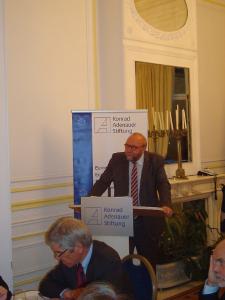Expert panel
Details
In his strive to move beyond the traditional ways of development cooperation, Professor Paul Romer, Senior Fellow at Stanford University, developed his concept of charter cities. Based on the assumption that the main obstacles for development, and a lack of investment are weaknesses in governance and particularly the rule of law, his radical idea focuses on the establishment of special economic and free trade areas on the territory of weak or developing states.
The construction of Charter Cities could help developing countries to attract investment and jobs. Flows of migration could be redirected to these new territories of possible prosperity were migrants could find the conditions they are looking for.
To launch new charter cities, Prof. Romer says, poor countries should lease chunks of territory to foreign powers well developed and without much colonial legacy. Those states without colonial history would take charge of public rules and governmental guidelines. Private capital would flood in and foreign aid would not be needed anymore. What sounds appalling in theory, however, has not only provoked criticism regarding the neo-colonial connotation of the approach but also its feasibility. Could it really be possible to establish in a growing world of interdependencies closed entities in a fairground style? Would developing countries and their governments which still carry the principle of sovereignty and non-interference on top of their agenda, be willing to tolerate the establishment of a foreign government on their territory half a century after the end of colonialism?





